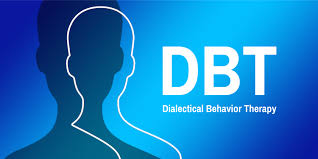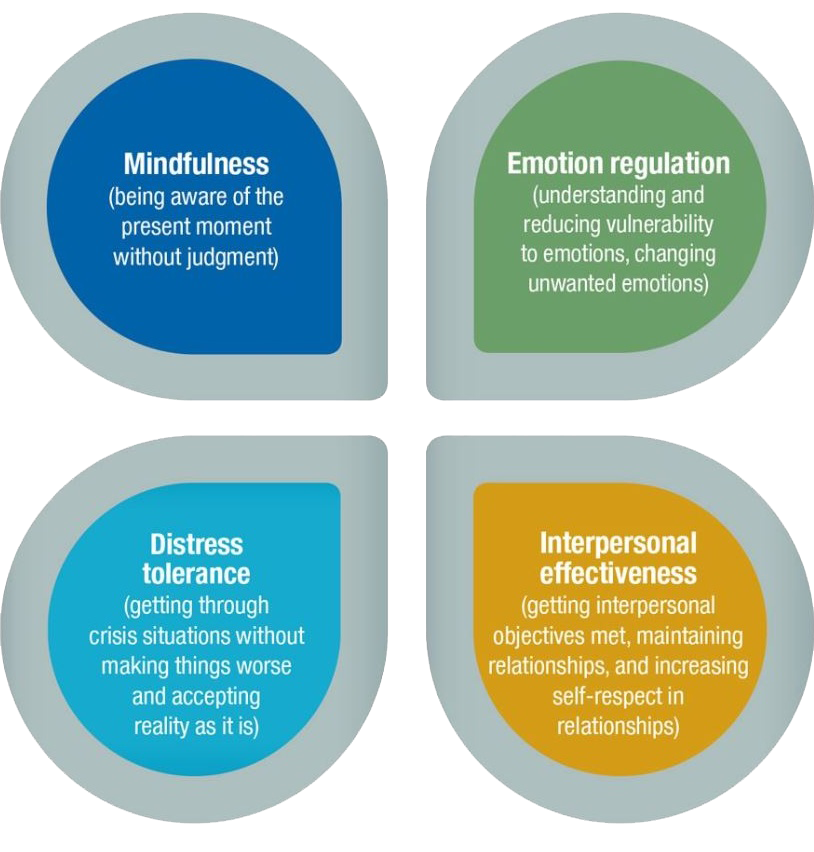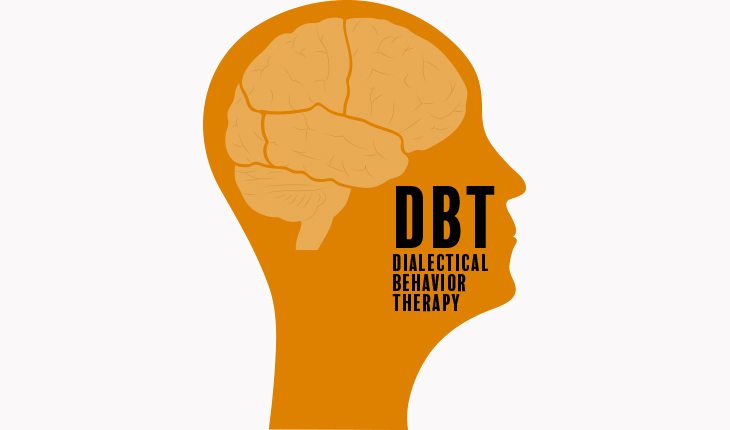Dialectical Behavior Therapy (DBT) is a type of psychotherapy that was developed by Dr. Marsha Linehan to treat people with Borderline Personality Disorder. But has since been used to help many other types of patients. It’s important to know what DBT is before you decide which type of therapy might be best for you. Read on for more information!
Contents
What Is Dialectical Behavior Therapy?

Dialectical Behavior Therapy, or DBT, is a type of psychotherapy that was developed by Dr. Marsha Linehan in the 1980s. It was used specifically to treat people with Borderline Personality Disorder (BPD). However, it has since been found to be helpful for many other types of patients as well. If you’re considering dialectical behavior therapy as an option for treatment, it’s important to learn more about what it is and how it works.
NOTE: DBT is a cognitive-behavioral therapy, which means that it focuses on the thoughts, beliefs, and behaviors that contribute to problems like emotional distress.
When To Resort To DBT?
Generally, DBT is often helpful for people with Borderline Personality Disorder. But it can be helpful for a wide range of issues including:
- Emotional dysregulation
- Suicidal thoughts or behaviors
- Self-harm
- Anger management
- Depression
- Anxiety disorders
- Trauma
What To Expect In DBT?

If you’re considering dialectical behavior therapy, it’s important to have a realistic idea of what to expect.
- First, DBT is often a long-term treatment, typically lasting at least a year.
- Second, it’s often very intensive, with sessions occurring several times per week.
While it can be helpful to have support available throughout the day, not everyone is able or willing to meet so often. The good news is that you do have options. So if one type of DBT isn’t working for you, your therapist should be open to trying something else!
NOTE: You’ll also need to be willing to put in the time and effort that it takes for dialectical behavior therapy treatment to work!
How Does DBT Work?

Goal
The goal of dialectical behavior therapy is to help patients find a balance between accepting themselves as they are and working towards change. DBT is often very effective in helping people to manage difficult emotions and behaviors.
Approach
Dialectical behavior therapy involves a team-based approach. This means that you’ll likely have a therapist who specializes in DBT. As well as a case manager or coach who will work with you on specific goals outside of therapy. The team also includes a therapist who specializes in anger management, if needed.
Stages
Dialectical behavior therapy is typically broken down into four stages.
Mindfulness
Learning to recognize and tolerate difficult emotions without acting impulsively or engaging in harmful behaviors, such as self-harm or substance abuse.
Emotional Regulation
Identifying triggers for intense emotions and finding ways of coping with those feelings so they do not lead you to act impulsively.
Interpersonal Effectiveness
Learning how to ask for what you want and need from others, as well as how to say no in a respectful way.
Distress Tolerance
Developing skills to tolerate difficult situations without making things worse or engaging in harmful behaviors.
What To Look For In a Dialectical Behavior Therapist?
As with any form of therapy, it’s important to choose a dialectical behavior therapy therapist who is a good fit for you. You’ll want to look for someone supportive and understanding. But also willing to challenge you when needed. It’s important that you feel comfortable talking with your therapist. And that you trust them to help you manage your emotions and behaviors.
NOTE: There is a wide range of professionals who have experience with dialectical behavior therapy. This includes psychiatrists, psychologists, therapists, and counselors. If you’re considering DBT, be sure to ask your therapist if they have any experience with it!
Professional’s Advice On Dialectical Behavior Therapy
Dialectical behavior therapy is widely used and recommended by mental health professionals for treating a wide range of issues. DBT has been used for decades. And there’s a lot of research to back it up. Also, a lot of research shows that dialectical behavior therapy is effective in treating these various mental health conditions. However, professionals think that it is not helpful for every issue. For example, some studies show promising results when using DBT for social anxiety disorder. But again professionals think that it is still not a good option for everyone.
Efficacy Of DBT
Hundreds of studies have shown that DBT is effective in treating:

- Major depression,
- Suicidal thoughts or behaviors,
- Borderline personality disorder,
- Post-traumatic stress disorder (PTSD),
- Self-harm issues,
- Anger management problems,
- Anxiety disorders including panic disorder, and
- Obsessive-compulsive disorder (OCD),
- Substance abuse issues,
- Eating disorders, and
- Chronic pain
NOTE: Note that, while there are hundreds of studies that show the effectiveness of dialectical behavior therapy. However, the studies do not pitch DBT to health insurance companies for covering treatment costs. Unfortunately, many providers choose to deny coverage because dialectical behavior therapy qualifies as an “experimental” treatment.
Case Study
A case study of a woman using dialectical behavior therapy got approval in the journal Cognitive and Behavioral Practice. She had struggled with binge eating for over 20 years, as well as having co-occurring anxiety and depression issues. Her therapist used DBT techniques to help her manage difficult emotions so that she could stop engaging in unhealthy behaviors such as binge eating. After a year of therapy, she was binge-free and no longer experiencing symptoms of anxiety or depression.
Conclusion
Dialectical behavior therapy is a powerful form of psychotherapy that can be very effective in helping people to manage difficult emotions and behaviors. It’s often long-term, intensive, and team-based, with sessions occurring several times per week.
If one type of DBT treatment doesn’t seem to be working for you, your therapist must be open to trying something else. It’s also vital that you feel comfortable talking with them and trust they will help manage your emotions and behaviors in a supportive way.
If you are looking for affordable Online Counseling MantraCare can help: Book a trial therapy session


